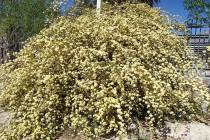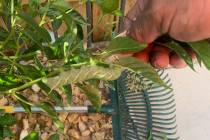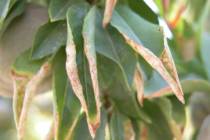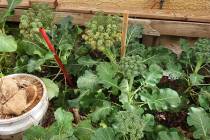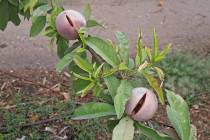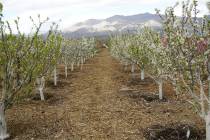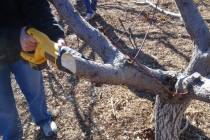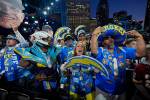Become a student of life, dive into a book
I recently attended a meeting on the issue of climate change at a local restaurant. It was a small group, but everyone was there to learn more about an important topic. The presentation was well done and very informative. It was followed by an excellent discussion in which everyone participated, asking questions and sharing ideas.
At one point, several books were recommended as a way to gain a deeper, more accurate understanding of the issue. A few people took note of the titles, but one person asked, "Can't we get this information any other way? I mean, I'm not going to sit down and read a book."
Here is a fundamental issue of extreme importance. In a society shaped by television, computer games and flashing neon, we are bombarded with information, much of it useless and trivial. Many people are missing the incredibly rich experience and depth of knowledge that a well-written book provides.
We must shift this attitude until we all become students again. Regardless of your belief about the issue of climate change, this is one topic that should not be overlooked. Books are the keys that lead to knowledge. Knowledge leads to realization, commitment, action and results. We need results, quickly.
Coverage in the mainstream media is increasing. Programs on global warming have reached many. But nothing provides as much detail as a book. With that in mind, here are some suggestions that will give you something to talk about at the water cooler, with your neighbors, or to discuss with your children. Children will be most affected by our ability to genuinely understand the impacts of our actions.
It is my intention to stir you into action. Become a student of life, in the context of our place on this planet. If you have done this already, then reach out to others so they can benefit from your experience. Invite them to pick up a book and explore what it has to offer. Let us help each other so that we may help ourselves. The following books have all provided at least one "Ah Ha!" moment for me. At some point, while reading each one it occurred to me that "This is a book that should be read by everyone."
There are many facets to our current environmental situation. In fact, everything is connected in very fundamental ways. Dr. David Suzuki's book "The Sacred Balance: Rediscovering Our Place in Nature" contains its own delicate balance of wisdom and science that profoundly influenced my understanding of our world. While the book does not focus specifically on climate change, it provides deep insight into the interactions of every aspect of life on Earth. Understanding the context of the issue is key, and nothing I've read explains it better.
Although we've all heard about climate change, how much do we really understand about this complex topic? "The Weather Makers," written by world-renowned scientist Tim Flannery, is an excellent resource. It is very detailed yet easy to read.
Some books are good at explaining the issue but don't always provide details on how to address it. Some provide information on important topics but lack passion.
George Monbiot's "Heat: How to Stop the Planet From Burning" is strong on all accounts. As we learn more about the effects of greenhouse gasses, it is becoming clear that deep cuts in emissions are vital and urgent. Monbiot addresses the issue head on, discussing real solutions that we can implement immediately.
Suzuki recommended this book to me, saying that it was so powerful that it caused a major shift in his own behavior.
In "Big Coal: The Dirty Secret Behind America's Energy Future," author Jeff Goodell tells a crucial story that is unknown to most Americans. Since much of our existing energy comes from coal, and many new plants have been proposed, this is a vitally important book for informed citizens.
As an alternative to the out-dated burning of fossil fuels for energy, "The Solar Economy: Renewable Energy for a Sustainable Global Future" by Hermann Scheer is very encouraging. The vision expressed in this book is powerful, inspirational and incredibly important.
These are just a few of many excellent environmental books available to us all. Buy them or use the library, as long as you expose your mind to the concepts. As with any information, it is up to the reader to decide what to do with it. Some may choose to look for opposing viewpoints, seeking alternative perspectives. Others may be inspired to go further, exploring and learning while also taking steps to address these important issues. That is my goal and I'm happy to share it with you. If you have some books to suggest to me, I welcome your e-mail.
Gandhi said, "Be the change you wish to see in the world." Change happens when we become clear about an issue, when we gain a deeper understanding that causes a shift in our thinking. Isn't it worth shifting some time from electronic distractions to some books that can change not only our personal lives but the lives of countless others to come?
Green Living is nothing without green learning. Please give it a try.
Steve Rypka is a green living consultant and president of GreenDream Enterprises, specializing in renewable energy, green building, alternative transportation and lifestyle choices for both residential and commercial clients. The company is committed to helping people live lighter on the planet. Steve can be reached via e-mail at steve@greendream.biz. More information relating to this column is posted at www.greendream.biz.








